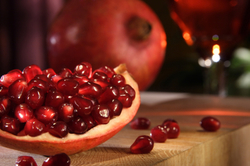[kl-bogel] How to Live to 100

Clue #8: Is your weight normal -- or are you only slightly overweight?
What it may mean: You have better odds of reaching 100 than if you were obese.
A surprising 2011 Albert Einstein College of Medicine study of 477 adults ages 95 to 112 found that these solid-gold agers had no better health habits overall than a comparison group born at the same time that had been studied in the 1970s. One difference: Those in long-lived group were much less likely to be obese.
Both male and female centenarians in the study were overweight at about the same rates as those in the shorter-lived group. But only 4.5 percent of the long-lived men and 9.6 of the women were obese, compared to 12.1 percent and 16.2 percent, respectively, of the younger-lived controls. ("Normal weight" is a Body Mass Index -- or BMI, a measure of height in proportion to weight -- in the range of 18 to 24; "overweight" is 25 to 30; over 30 is "obese.")
This finding echoes other studies showing the greatest risks of death among those who are obese or underweight at age 65 (BMI under 18.5), compared to those of normal weight or slight overweight. A 2011 study at Loma Linda University in Southern California found that men over age 75 with a BMI over 27.4 lived nearly four years less than those with a lower BMI. For women over age 75, a BMI over 27.4 led to a two-year shorter lifespan. Studies of centenarians show that men who reach 100 are almost always lean (more so than women).
Luckily, this clue is one you can control. "Since you can't be sure if you'll live to 100, I wouldn't take the chance of ignoring the lifestyle interventions that we know will at least put you in the half the population who die after age 80 -- starting with watching weight and being sure to exercise," says the senior author of the Albert Einstein study, Nir Barzilai, director of the college's Institute for Aging Research.
Clue # 9: How long are your telomeres?
What it may mean: Many people who live to 100 have a hyperactive version of an enzyme that rebuilds telomeres.
"What-o-meres?" you ask. Telomeres are protective DNA sequences at the ends of chromosomes that gradually shorten as cells divide. (Pioneering telomere researcher Elizabeth Blackburn of the University of California-San Francisco compares them to shoelace caps.) Eventually the telomeres become so short that cells stop dividing, a condition called senescence, creating the effects we recognize as aging in related tissue.
Scientists are still unraveling the key role telomeres seem to play in aging, cancer, and other biological processes, but this much is clear: The longer your telomeres, the more time you're apt to have left. A 2010 Italian study reported that cancer-free people with shorter telomeres were more likely to develop cancer within ten years than those with longer telomeres, for example.
Some studies show that removing chronic stress, not smoking, and eating a diet rich in omega-3 fatty acids can improve telomere length. Those centenarians with hyperactive telomere-making apparatus can probably thank their genes, though.
New blood tests are now being marketed directly to consumers, purporting to predict longevity based on telomere length. But critics caution that there aren't standards for measuring telomere length and that there can be such variability in telomeres that it's hard to predict much of anything from a sample.
Clue #10: Are you a positive person?
What it may mean: Emotion influences health, which influences aging.
Some studies have shown that an upbeat attitude about aging adds years. But long-term studies conducted at the Stanford Longevity Center show that emotions, more than attitudes, may be the biologic mechanism at work, says Laura Carstensen, the center's director.
"What's the mechanism at work here? Feeling upbeat about your life means you experience less stress, which in turn affects cortisol levels, which can affect health," she says. Stanford researchers periodically assess 19 different emotions in subjects randomly polled over 1 week at 5-year intervals. Having more positive emotions than negative ones is associated with living longer.
Carstensen is a firm believer that while "slow agers" clearly exist, there's more to their stories than lucky genes. "There's mounting evidence that genes play a role in longevity, but genes play a role in almost everything," she says. "They don't express themselves in vacuums -- there are very complex interactions between genes and lifestyle." So all that advice on how to live to 100? Can't hurt to heed it.
Juice for health

2. Drink pomegranate juice.
What the research shows: Positive studies on pomegranate juice just keep coming. In the past six years, researchers have found that eating pomegranates or drinking the juice may prevent hardening of the arteries, reduce blood fats in diabetics, prevent gum disease, and slow the growth of several types of cancer, including lung cancer. Most of this has come from preliminary studies involving mice, or small studies involving humans -- but the sheer number of studies with similar results, coming out of different countries, is impressive.
How to make this work for you: Drink one glass of pomegranate juice a day, or eat the fruit itself, which has the benefit of including the natural fiber in the seeds. Some people don't like the taste of pomegranate, which can be sour. If that's you, add honey or mix into a smoothie, or add the seeds to a fruit salad with yogurt.
You can also take a supplement, which certainly makes things easier. But most research studies have been done with the fruit itself, so the benefit of supplements isn't as well established.
Rainbow diet

3. Go green and orange for dinner, red and blue for dessert.
What the research shows: Ongoing studies at Tufts University's Human Nutrition Research Center on Aging and other institutes show that certain fruits and vegetables are nutritional powerhouses, packed with disease-fighting phytochemicals, with the potential to ward off cancer, protect against heart disease and diabetes, and even slow aging itself -- at least to some degree.
Blueberries, for example, have been shown to reverse balance, coordination, and memory problems. Cranberries deactivate bacteria and prevent infection. Broccoli made headlines last year when it was shown to ward off prostate cancer in men who were at risk.
How to make this work for you: Anti-aging "superfoods" give themselves away by virtue of their color: The dark green of broccoli and kale; the rich orange of squash, sweet potatoes, and mangos; the deep purple of grapes; and the rich reds, blues, and purples of berries all indicate these foods are essentially medicine in food form. Nutritionists say the best thing to do is "eat a rainbow," choosing brightly colored foods and steering clear of those that are light-colored or colorless. Here's a quick color-coded guide:
Red = lycopene
Orange/yellow = carotenoids
Green = lutein and chlorophyll
Blue/purple = anthocyanins
The exception: White vegetables like garlic and onions contain important phytochemicals too. In addition, cruciferous vegetables including broccoli, cauliflower, and Brussels sprouts, which are eaten in "bud" form before they leaf out, have chemicals called indoles that protect against cancer; and leafy greens like spinach are rich in folate, which protects the heart and prevents birth defects and colon cancer.
Dancing does it

4. Put on your dancing shoes.
What the research shows: Learning a new skill, particularly one that's fairly complex and involves coordination between the brain and the body, is one of the best ways to protect memory and preserve cognition, experts say. But the recommendations can get much more specific than that. In one recent study, researchers at McGill University in Canada found that people who joined a class to learn the sophisticated steps of Argentine tango performed significantly better on cognitive tests and showed improved balance, posture, and motor coordination than a comparative group who walked instead of danced.
How to make this work for you: Commit one night a week to learning something new that challenges you both mentally and physically. Sign up for tai chi, join a Zumba class, or learn to hula hoop. The commitment required to reap this benefit isn't as daunting as you might think. In the tango study, for example, participants danced for just two hours once a week.
One more thing: Getting moving has benefits in and of itself. In a groundbreaking study earlier this year, researchers found that when people with mild dementia participated in aerobic exercise for 45 to 60 minutes four days a week, they showed significant gains in thinking speed and memory, compared with a control group that didn't exercise and continued to experience mental decline.
Calories count

5. Cut calories.
What the research shows: The science behind calorie restriction, as it's known, is eye-opening. Studies in animals and people show that reducing calorie intake between 15 and 30 percent of normal levels leads to a host of anti-aging benefits. Experts believe calorie restriction lowers metabolic rate and causes the body to generate fewer damaging free radicals. It also has a beneficial effect on the thyroid, which regulates your overall metabolic rate.
The result: startling drops in cardiovascular risk factors, lower cancer rates, and -- plain and simple -- longer life. The benefits are more than physical; one recent German study found that calorie restriction boosted memory and cognition. Researchers theorized this was because it reduced insulin resistance and inflammation, both of which are linked to age-related cognitive decline.
How to make this work for you: Calorie restriction isn't as daunting as it sounds. The secret is to cut simple carbs, fats, and sugar. Serve red meat sparingly, and replace it with turkey, fish, and eggs. Eat more beans and legumes. For dessert, try strawberries or fruit parfait. For snacks, eat nuts or whole wheat crackers. Portion size is key, too, since calorie cutting is more important than eliminating certain foods.
Good fat

6. Boost brainpower with brain-healthy fats.
What the research shows: Research into the importance of omega-3 fatty acids continues to pour in, and researchers have begun to better understand the vital role these fats play in brain health. According to neurologists, two thirds of your brain is composed of fats. Myelin, the protective sheath that covers neurons, is 70 percent fat -- and the membranes of neural cells are composed of fatty acid molecules as well.
The bottom line: Your brain cells depend on fatty acids to maintain their ability to communicate. Studies have shown omega-3 fatty acids boost memory, reduce depression and other mood disorders, protect cardiovascular health, and reduce cancer rates. As far as brain health, the benefits kick in quickly: In one recent study, participants 55 and up with memory problems took omega-3 fatty acids for six months and scored many fewer errors on learning and memory tests than those taking a placebo.
How to make this work for you: The body can't make its own omega-3 fatty acids; you have to get them from food, so boost your diet with as many fatty acids as you can. Stock up on ground flaxseed (whole seeds are not easily digested and pass right through), which is becoming increasingly available in grocery stores, and add it to everything you can think of. Sprinkle it on oatmeal or cereal; add it to a bowl of yogurt and fruit or a smoothie; stir it into soup or sprinkle on a salad.
Adorn your table with a decorative decanter for olive oil (it keeps its potency best in an opaque bottle) and drizzle it over veggies and salads or dip your bread into it.
Keep a jar of fish oil capsules on your kitchen counter and take one as you begin each meal. (This way you're less likely to have the "fish burps" that annoy some folks.) Because fish oil has been purified for mercury and other heavy metals, you don't have to limit your intake the way you do with seafood.
But eat seafood too; some studies have shown that populations that eat a diet high in fish are much healthier and longer-lived than populations that don't. Algae is high in DHA, one of the key omega-3 fatty acids, and some people incorporate algae-based supplements, such as spirulina, as well.
Stand up straight

7. Protect your posture.
What the research shows: Sitting and stress are the enemies of the spine, aging experts say. Why? Both tend to make us hunch forward, head jutting forward between rounded shoulders. But poor posture does much more harm than make you look old, researchers say. Rounded posture compresses the nerves and disks in the spine, restricting blood flow to the supporting muscles and leading to neck, shoulder, back, and hip pain.
In addition, recent research has focused on the connection between poor posture and breathing disorders and circulatory health. Some doctors have patients do this experiment: While hunched forward, try to draw a deep breath into your lungs. You'll find it's very hard to do.
Over time, poor posture is also a major contributor to balance problems and falls.
How to make this work for you: The key is to relearn how to stand, sit, and lie so your spine is stretched straight and tall, says Esther Gokhale, author of 8 Steps to a Pain-Free Back (Pendo Press, 2008), who teaches posture therapy classes in Palo Alto, California. To put Gokhale's principles into practice, roll your shoulders back and down, opening up the chest, and "stack" the spine directly over the hips, stretching it as tall as possible. Tuck your ribs back against your spine, letting your pelvis come naturally forward.
Unfortunately, following the commandment to "stand up straight" is more difficult than it sounds for those who need to undo years of damage. In this case, postural therapy, a type of physical therapy, can help you strengthen and rebalance specific muscles necessary to hold the spine in the correct posture. Some physiotherapy experts also advocate "inversion therapy," in which you use a device to hang upside down to reverse the effects of gravity. Practicing yoga can help you achieve the same goal through inverted postures such as headstands, shoulder stands, and others.
An additional benefit: Some participants in postural therapy say they've regained as much as an inch in height lost to aging.
--You received this message because you are subscribed to the Google Groups "kl-bogel" group.
To post to this group, send email to kl-bogel@googlegroups.com
To subscribe or unsubscribe at http://groups.google.com.my/group/kl-bogel/subscribe
For more options, visit this group at http://groups.google.com/group/kl-bogel?hl=en
Sebarang email pertanyaan, hantar kepada abangmod@gmail.com
Comments
Post a Comment